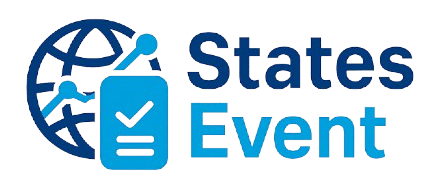Today's leaders recognize the need to maximize productivity in their team and that can only happen when employees are committed and engaged.
It's no surprise that actively engaged employees are 20 to 40 percent more productive in the workplace than those who aren't engaged.
In order to have a team of high-performing and successful employees, you need to know the best techniques to engage and motivate them. Not only does it make your job easier, but coaching greatly improves employee performance when done correctly.
While once considered a "soft" skill, coaching for high performance is now recognized as an effective method that produces better decision-making skills, improved project management, and increased performance while lowering overall turnover.
WHY SHOULD YOU ATTEND?
Many of us came to our roles and positions in life/work with great technical training and experience. It is what made us promotable in leadership roles. But many of us are not very good coaches, we think we are because we are good at doing the work, but it turns out we are not very good teachers, instructors, or coaches.
Not our fault, just not our innate gift. Some people are not the best at performing the tasks or even playing the game (think of any physical activity) but are terrific coaches! Why or How does that happen and make them successful in that arena?
Most outstanding coaches have 4 talents: An understanding of the technical requirements, terrific observational skills, communication, and relationship-building capabilities. And they can link those skills and abilities with the mental and emotional requirements for improving individual and team performance. Do they hold people accountable - Yes!
If you want to improve your team’s performance or that of individuals, even yourself, then perhaps you will find a missing piece in this webinar or an area where as a “Coach” you too can improve. Coaches need Coaches!
AREA COVERED
- Help you understand how to tap into employee commitment
- Unravel what engages and disengages employees
- Detail the 6 key skills necessary for effective coaching
- Share a useable 5-step model for conducting a coaching session
- Clarify the differences between coaching, mentoring, teaching, and directing
- Provide over 44 questions to drive action and accountability
WHO WILL BENEFIT?
- Team leaders
- Managers
- Supervisors
- Directors
- Coaches
Many of us came to our roles and positions in life/work with great technical training and experience. It is what made us promotable in leadership roles. But many of us are not very good coaches, we think we are because we are good at doing the work, but it turns out we are not very good teachers, instructors, or coaches.
Not our fault, just not our innate gift. Some people are not the best at performing the tasks or even playing the game (think of any physical activity) but are terrific coaches! Why or How does that happen and make them successful in that arena?
Most outstanding coaches have 4 talents: An understanding of the technical requirements, terrific observational skills, communication, and relationship-building capabilities. And they can link those skills and abilities with the mental and emotional requirements for improving individual and team performance. Do they hold people accountable - Yes!
If you want to improve your team’s performance or that of individuals, even yourself, then perhaps you will find a missing piece in this webinar or an area where as a “Coach” you too can improve. Coaches need Coaches!
- Help you understand how to tap into employee commitment
- Unravel what engages and disengages employees
- Detail the 6 key skills necessary for effective coaching
- Share a useable 5-step model for conducting a coaching session
- Clarify the differences between coaching, mentoring, teaching, and directing
- Provide over 44 questions to drive action and accountability
- Team leaders
- Managers
- Supervisors
- Directors
- Coaches
Speaker Profile
 Bob Verchota
Bob Verchota
Bob Verchota, SPHR, is the President and owner of RPVerchota & Associates, a human resources and management practices consulting firm. He has over 30 years of human resources and operational leadership experience. His most recent corporate assignments include serving as VP Support Services, VP of Ancillary Services and Human Resources, and VP Human Resources. Focus areas include organization change and employee development, talent acquisition, risk management, compensation and benefits, labor and employee relations, performance improvement, and other operational issues. Academic pursuits include an undergraduate degree in Business Administration, graduate degree in Healthcare Administration (MHA), and doctoral work in Organization Development EdD …
Upcoming Webinars


Excel Power Skills: Master Functions, Formulas, and Macros …
